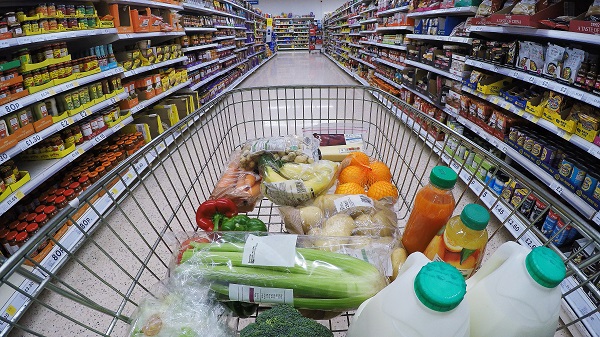UK inflation comes in hotter than expected
21st June 2023 08:06
by Victoria Scholar from interactive investor
The cost of living remains stubbornly high and inflation here is greater than anywhere in the developing world. Our head of investment reports.

UK inflation rose by 8.7% in the year to May, unchanged from April, despite expectations for a drop to 8.4%. On a monthly basis, CPI was also unchanged at 0.7% in May. Core CPI, which strips out some of the more volatile components rose by 7.1% year-on-year, increasing from April’s 6.8%% reaching the highest level since March 1992.
- Learn more: SIPP Portfolio Ideas | How SIPPs Work | Transfer a SIPP
Air travel, live music events, computer games, and second-hand cars had the bigger upward contributions to the headline figure, partially offset by falling motor fuel prices. Food and non-alcoholic drinks prices rose by 18.4% in the year to May, down from 19.1% in April with the largest downward contribution coming from milk, cheese and eggs with the annual rate easing to 27.4% from 29.3% in April.
The only food class which saw a rise in inflation was fish, where the rate increased from 14.2% in April to 16.6% in May due to higher canned tuna prices.
Although inflation has fallen from the October peak of 11.1%, the latest data came in hotter than expected, highlighting the ongoing price pressures in the economy. Britain is stuck with the highest inflation rate in the developing world as a tight labour market with worker shortages and strong wage growth add to business costs, which are getting passed onto consumers in terms of higher prices. The central bank is deeply concerned that inflation could become entrenched, a risk that is growing as inflation shows no signs of abating this month.
Prime Minister Rishi Sunak’s goal to half inflation by the end of the year is starting to look less likely as sticky inflation struggles to cool. As we approach the halfway mark of 2023, inflation ideally would be closer to 7.5% to put him on track to achieve his target of bringing inflation back to around 5% by year-end, yet inflation remains closer to 9%.
- Will inflation force interest rates and mortgage costs even higher?
- Stockwatch: the very real threat of a ‘balance sheet recession
- Benstead on Bonds: are bonds now the only game in town for income?
- How your portfolio will be impacted if higher interest rates endure
No doubt today’s data will strengthen the resolve of the Bank of England to continue with its monetary tightening path to try to bring inflation back down towards its 2% target, a goal which feels unlikely anytime soon. However, higher interest rates will add to the squeeze on UK mortgage holders as borrowing costs soar. This is already dampening demand in the property market and is also pushing up rental costs because of the increased pool of renters who can no longer afford to buy.
Chancellor Jeremy Hunt will meet with Britain’s big banks on Friday to discuss the recent surge in mortgage costs. However, any large-scale fiscal support for mortgage holders through tax cuts or government spending is unlikely as it could exacerbate the UK’s inflationary woes and counteract the Bank of England’s hawkish agenda.
These articles are provided for information purposes only. Occasionally, an opinion about whether to buy or sell a specific investment may be provided by third parties. The content is not intended to be a personal recommendation to buy or sell any financial instrument or product, or to adopt any investment strategy as it is not provided based on an assessment of your investing knowledge and experience, your financial situation or your investment objectives. The value of your investments, and the income derived from them, may go down as well as up. You may not get back all the money that you invest. The investments referred to in this article may not be suitable for all investors, and if in doubt, an investor should seek advice from a qualified investment adviser.
Full performance can be found on the company or index summary page on the interactive investor website. Simply click on the company's or index name highlighted in the article.